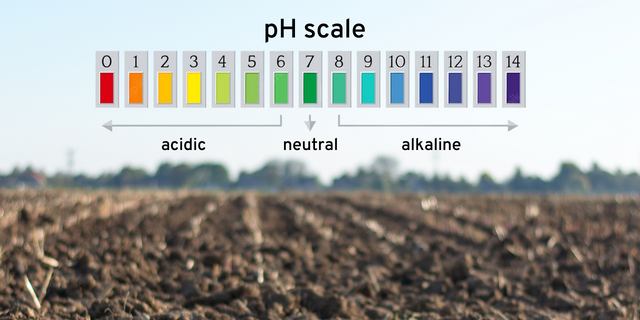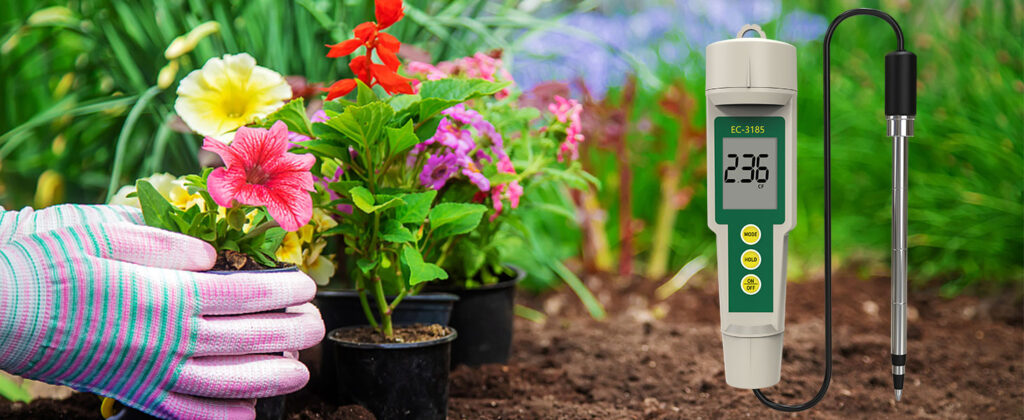blog
The Best Soil Testing Kits for Home Gardeners
For every gardener, from beginners to seasoned pros, understanding the condition of your soil is one of the most important factors that determine the success of your garden. Soil quality plays a pivotal role in plant health, and without knowing the precise levels of essential nutrients, you might end up under or over-fertilizing, which can harm your plants. Soil testing kits are invaluable tools for home gardeners, providing the insights needed to optimize soil conditions for better plant growth and productivity.
In this article, we’ll explore the significance of soil testing, the types of soil testing kits available, and review some of the best soil testing kits on the market today to help you choose the perfect one for your gardening needs.
1. Why Soil Testing Is Crucial for Home Gardeners
Soil testing is essential because it provides detailed information about the quality and health of your soil, which directly affects the growth of plants. There are several key reasons why every home gardener should consider testing their soil:
- Soil pH: pH affects how well plants can absorb nutrients from the soil. Plants have specific pH preferences, so knowing your soil’s pH can help you choose the right plants and amend the soil accordingly.
- Nutrient Levels: Essential nutrients such as nitrogen, phosphorus, and potassium are vital for plant growth. Soil testing helps determine whether your soil contains these nutrients at optimal levels or if they need to be supplemented.
- Optimal Growth: Testing your soil allows you to adjust its composition, making it more conducive to healthy plant development. Whether you’re growing vegetables, flowers, or shrubs, a well-balanced soil profile can lead to higher yields and more vibrant plants.
- Cost-Effective: By using a soil test kit, you can avoid wasting money on unnecessary fertilizers or soil amendments, ensuring that you only apply what your soil actually needs.
By understanding your soil’s current state, you can make informed decisions on how to improve it, saving time, effort, and resources while cultivating a healthy, thriving garden.

2. Types of Soil Testing Kits
Soil testing kits come in a variety of forms, each designed to cater to different needs and preferences. Understanding these types will help you choose the best one for your gardening goals:
- Basic Soil Test Kits: These are the most common and affordable kits. They test for the essential elements like pH, nitrogen (N), phosphorus (P), and potassium (K). Basic kits are ideal for gardeners who need quick and simple results to improve general soil health.
- pH Test Kits: If your primary concern is the acidity or alkalinity of your soil, then a pH testing kit is the way to go. These kits are designed to give an accurate reading of the soil’s pH level, which is essential for selecting plants that will thrive in specific soil conditions.
- Comprehensive Soil Test Kits: These kits go beyond basic nutrient testing. They provide in-depth results, including information on micronutrients such as calcium, magnesium, and sulfur. Comprehensive kits are ideal for gardeners looking for a full profile of their soil’s composition, especially those growing specialized crops.
- Digital Soil Testers: Digital testers use electronic sensors to provide instant, accurate readings of soil properties. These testers are user-friendly and eliminate the need for chemicals or color indicators. Some advanced digital testers even provide detailed data on moisture, temperature, and nutrient levels.
- Mail-In Soil Test Kits: Some companies offer mail-in test kits where you collect a soil sample, send it to a lab, and receive a detailed report on your soil’s composition. These are the most accurate and thorough tests, but they tend to be more expensive and take longer to receive results.
Each type of soil testing kit has its advantages and is suited to different gardening needs. Whether you need a simple pH test or a comprehensive nutrient analysis, there’s a kit for every gardener.
3. The Best Soil Testing Kits for Home Gardeners
Now that we’ve covered the types of soil testing kits available, let’s review some of the best options on the market for home gardeners. These kits are known for their accuracy, ease of use, and detailed results.
1. Luster Leaf 1601 Rapitest Soil Test Kit
The Luster Leaf 1601 Rapitest Soil Test Kit is one of the most popular soil test kits available. It is affordable and easy to use, making it a great choice for both beginners and seasoned gardeners.
- What it tests: pH, nitrogen, phosphorus, and potassium levels.
- Features: The kit includes color-coded test capsules that react with soil samples to provide results. It also comes with a detailed instruction manual and a chart to help you interpret the results.
- Pros: Inexpensive, easy to use, and provides a broad overview of your soil’s health.
- Cons: Limited in terms of testing micronutrients and organic matter levels.
2. MySoil Soil Test Kit
The MySoil Soil Test Kit stands out for its comprehensive testing. It offers a full analysis of soil, including 14 essential nutrients, and provides tailored recommendations for improving soil health.
- What it tests: pH, nitrogen, phosphorus, potassium, calcium, magnesium, sulfur, iron, and other nutrients.
- Features: The kit allows you to send your soil sample to a professional lab, which analyzes it and provides a detailed report via email. The results include personalized advice on how to adjust soil conditions.
- Pros: Offers a comprehensive analysis of both macronutrients and micronutrients, provides personalized advice.
- Cons: Pricier compared to basic kits, requires mailing the soil sample.
3. Kelway Soil pH and Moisture Meter
The Kelway Soil pH and Moisture Meter is a digital tool that simplifies soil testing. It provides instant results without the need for chemicals or soil mixing, making it a convenient option for quick assessments.
- What it tests: pH and moisture content.
- Features: The digital meter offers a straightforward display of pH levels and moisture content. It’s especially useful for gardeners who want to monitor their soil’s health on a regular basis.
- Pros: Quick, digital readings; no need for chemicals or soil mixing.
- Cons: Does not test for nutrients or other elements.
4. Luster Leaf 1881 Digital Soil Meter
For those looking for a more advanced option, the Luster Leaf 1881 Digital Soil Meter is an excellent choice. It provides a digital readout of pH, moisture, light, and temperature, making it ideal for precise soil condition monitoring.
- What it tests: pH, moisture, light, and temperature.
- Features: This meter displays clear, easy-to-read digital results. It’s designed for frequent use and helps gardeners ensure that their soil is in optimal condition for plant growth.
- Pros: Multi-functional, easy to use, ideal for indoor and outdoor use.
- Cons: Higher price point compared to simpler kits.
5. Jenkins Soil Test Kit
The Jenkins Soil Test Kit is perfect for gardeners who want an all-in-one solution for testing soil fertility. It tests for a variety of factors including nitrogen, phosphorus, and potassium levels, as well as pH.
- What it tests: pH, nitrogen, phosphorus, potassium, and organic matter levels.
- Features: The kit includes color-coded tests and a detailed guide to interpreting the results. It’s a great starter kit for gardeners who want to learn more about their soil.
- Pros: Affordable, easy to use, provides key soil health insights.
- Cons: Does not test for as many micronutrients as some other kits.
Each of these kits offers different features, so the choice of which to use depends on your specific needs and budget. For gardeners seeking simplicity and cost-effectiveness, basic kits like the Luster Leaf Rapitest or Jenkins Soil Test Kit are great options. If you need a more comprehensive soil profile, the MySoil Soil Test Kit or Luster Leaf Digital Soil Meter may be a better fit.

4. How to Use a Soil Testing Kit
Using a soil testing kit is straightforward, but it’s important to follow the instructions carefully to ensure accurate results. Here’s a step-by-step guide:
Step 1: Collect Your Soil Sample
Start by collecting a soil sample from several different areas of your garden to ensure that it’s representative of your entire garden’s soil. Use a clean trowel to dig about 2-3 inches into the soil. Take samples from 5-10 different spots and mix them together in a clean container.
Step 2: Prepare the Sample
Once you have the soil sample, remove any debris such as rocks or roots. If the soil is wet, let it dry out before testing, as wet soil can affect the accuracy of the results.
Step 3: Conduct the Test
Follow the instructions provided with your kit. Some kits require you to mix soil with testing chemicals, while others use probes or digital meters for a direct reading.
Step 4: Record Your Results
For color-coded kits, compare the color of the test solution to the provided chart to determine the nutrient levels and pH. For digital kits, record the readings displayed on the meter.
Step 5: Interpret the Results
Based on the results, you can make informed decisions on how to amend your soil. If the pH is too high or too low, you can add lime or sulfur to adjust it. If certain nutrients are lacking, you can apply the appropriate fertilizers to balance the levels.
5. Final Thoughts
Choosing the right soil testing kit for your garden depends on your specific needs, budget, and the level of detail you require. Whether you are looking for a basic test or a comprehensive analysis, the best soil testing kits provide valuable insights that can help you optimize your soil for healthier plants and better yields. By regularly testing your soil, you ensure that your plants receive the proper nutrients and thrive year after year.
With a variety of kits available, home gardeners have access to the tools they need to create the best possible environment for their plants. Happy gardening!


